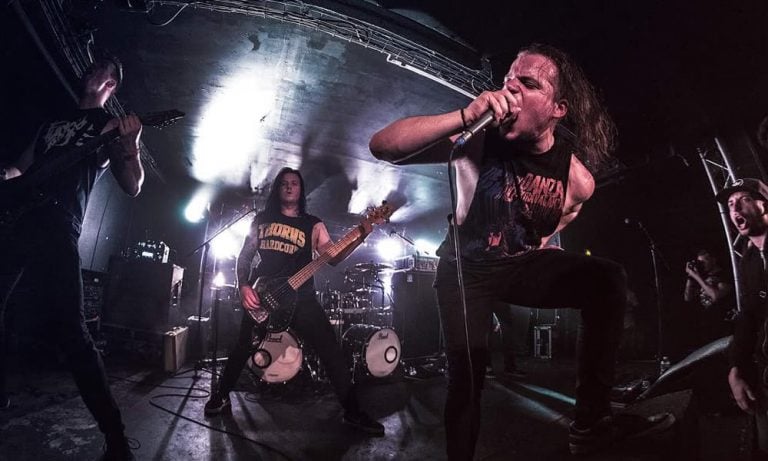Extreme metal is “a struggling thing down here, and certainly not from a lack of bands,” says Thy Art Is Murder guitarist Andy Marsh during our recent chat. “There are many great ones, but with such a small population, that’s just how it is.”
Our population is certainly a tough barrier for any local heavy artist to break, and add to that a shrinking number of places to tour, as well as the sheer distance between states, and its easy to see where his feelings stem from. But while heavy music is undoubtedly on the rise in Australia, are the heaviest bands still fighting a losing battle?
Drummer of deathcore group Aversions Crown put it perfectly to Music Injection early this year, remarking, “There aren’t many venues for bands, which means most head up to the Brisbane scene and work from there. A lot of the heavy music venues either shut down or changed, which makes it pretty hard to see a heavy gig on the Gold Coast.”
An important thing to consider is that this type of music originates in Europe and the US, giving it a much larger space and the ideal cultural climate to thrive in. No wonder locals like Thy Art, Aversions Crown and Hobart death metal four-piece Psycroptic have been releasing their records on European and US labels, notably Nuclear Blast.

Further complicating the road for bands like Thy Art is censorship, where their songwriting delves into topics that are often considered taboo. The original album cover for third record Holy War depicted a child suicide bomber, reflecting the often destructive impacts of religious causes on young individuals, and the artwork was omitted from retail versions.
That’s not the first time we’ve had censorship issues in Australia due to this kind of thing.
Love Music?
Get your daily dose of metal, rock, indie, pop, and everything else in between.
Intense Hammer Rage from Tasmania had 200 copies of their US-produced album Avagoyamugs confiscated at Melbourne Airport in 2003, because the artwork and printed lyrics explored topics including child pornography. Yet according to vocalist Allan Byard, the songs were about “real-life incidents, read about in a book bought in a local Burnie bookshop”.
If you think about it, similar controversial topics are more readily available to us in the form of books, TV shows and movies. However, extreme music is often in a separate realm, hinting to a dangerous assumption that its effect on people is inherently destructive.
Ultimately, it’s this very issue of aesthetic that colours the struggling nature of extreme music down here.
Admittedly, it’s often a lot harder to decipher just what’s going on with the lyrics and those complex rhythms, so it makes sense why the majority don’t dig extreme music. However, you’ll also find some important issues being covered, both social and personal.
While Thy Art have pushed messages in the past that call out the dangers of religion, their songwriting is far more nuanced than their most controversial artwork and merch suggest. For example, ‘Violent Reckoning’ on Holy War explores the vicious spread of misinformation online, and our widespread tendency to fall into clickbait.
Marsh is certainly right about extreme Aussie bands doing it tough here and often leaving home more permanently, but other heavy groups have been killing it both locally and on world stages.
The Melbourne-based UNIFIED Music Group have certainly played their part there, growing a roster of diverse heavy acts on independent label UNFD, and injecting fresh life into the live circuit with the annual Unify Gathering.

Musically, bands like metalcore mainstays The Amity Affliction and In Hearts Wake definitely bring the brutality, yet we’re also much more receptive to the topics that they’re most vocal about.
Joel Birch’s struggles with depression and anxiety resonate deeply with Amity fans, particularly young males, while the latter have garnered a reputation for promoting environmental awareness. That permeates through latest hard-hitting record Ark, along with the quintet’s ‘We Are Waterborne’ initiative, involving a series of waterway clean-ups on our east coast.
So it’s not necessarily the sound of extreme bands that’s the real difference here, but many people certainly struggle with the types of issues explored, as well as how these are presented. That further compounds on the inherent challenge of being a heavy musician in Australia.
While there’s clearly still a divide between extreme music and the local bands currently on the rise, in the words of Psycroptic drummer Dave Haley, “I think the more people into heavy music the better, at the end of the day.”


































